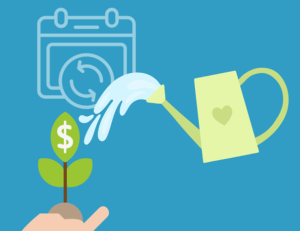Sarah Ford | September 9, 2014
The Ice Bucket Challenge Won’t Solve Charity’s Biggest Problem
By Dan Pallotta
I love the Ice Bucket Challenge. Period. It’s a collective expression of love in a world with far too little of it. It has generated public tears in an age with far too few of them. It restores faith. It connects. And, as of last week, it raised more than $100 million for the Amyotrophic Lateral Sclerosis Association, up from donations of $2.8 million for the same period last year.
So, are we looking at the future of charity? We are glimpsing the potential of momentary collective engagement, but at the same time, we are seeing the confining rules by which nonprofits must play, collectively imprisoned in an ancient way of thinking. The ALS Association is already being scrutinized to make sure it doesn’t spend a penny of the Ice Bucket money on anything but research. So when the enthusiasm fades, there will be nothing there to replace it, because investment in the replacement was forbidden.
I love the Ice Bucket Challenge as a thing unto itself. But for the sake of the ALS Association and everyone afflicted with ALS, we must dedicate ourselves to something far greater – yes, far greater than $100 million. We must aspire to a statistically significant increase in charitable giving as a percentage of GDP. And for that to happen we need to give charities far more freedom to invest in that result.
Charitable giving in the U.S. was $335 billion in 2013, but only about 15% of that, or $50 billion, went to health and human services causes – 85% went to religion, higher education and hospitals. $50 billion isn’t near enough to cure cancer, ALS, AIDS, Alzheimer’s, and other threatening diseases. It’s not enough to end poverty, homelessness, bullying, and all of the other problems charities address.
Charitable giving has remained stuck at 2% of GDP in the U.S. ever since we started measuring it in the 1970s. In forty years, the nonprofit sector has not taken any market share away from the for-profit sector.
What keeps us from increasing charitable giving? We are inherently averse to seeing humanitarian organizations spend money on anything other than “the cause,” as we define it, and we define it very narrowly. We condemn them for using donated resources on building market awareness or on fundraising, even though without those things, they can never reach the scale we need to fully address these massive social problems.
Without a systemic way to raise money and also build market awareness of its causes, charities have to pray that a fluke like the Ice Bucket Challenge – a zero-cost, once-in-a-lifetime, spontaneously combusting viral idea – will come their way. This is no way to change the world.

Get Resources and Insights Straight To Your Inbox
Explore More Articles
Nurturing Payroll Giving Donors: 5 Tips to Deepen Engagement
Payroll giving donors are some of the most consistent and committed supporters nonprofits have, but they’re often overlooked in day-to-day fundraising strategies. These donors contribute…
Read ArticleHow to Align Your Company’s Values with Your Hiring Process
Hiring is about more than filling roles—it’s about shaping the future of your company. Every new team member contributes to the culture you’re building, and…
Read ArticleGet Resources and Insights Straight To Your Inbox
Receive our monthly/bi-monthly newsletter filled with information about causes, nonprofit impact, and topics important for corporate social responsibility and employee engagement professionals, including disaster response, workplace giving, matching gifts, employee assistance funds, volunteering, scholarship award program management, grantmaking, and other philanthropic initiatives.




